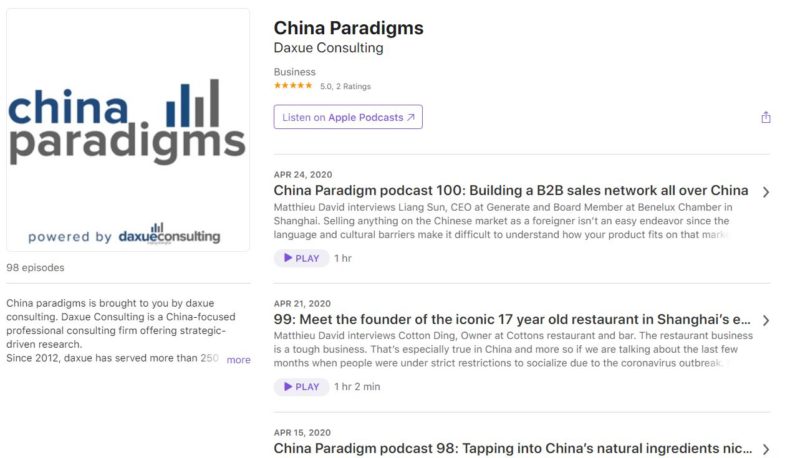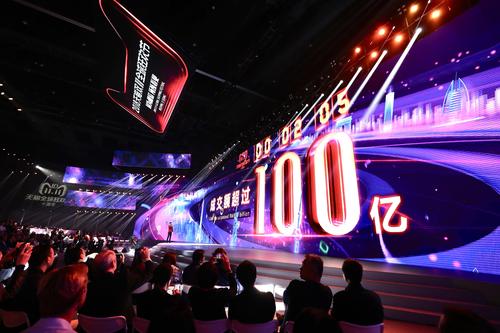Double 11, also known as Singles’ Day, is the largest e-commerce day in China. It started as an annual discount event that only happened on Tmall, but now it has become a national shopping festival through all Chinese e-commerce platforms. Each year, we see an evolution of Double 11 marketing strategies from brands. In 2020, we can expect to see more livestreaming, gamification and engagement.
According to Quest Mobile, 660 million Chinese internet shoppers participated in mobile shopping on Double 11 2019. More than 60 million users checked out at midnight of Single Day, and it reached the highest at 9 pm, with over 100 million users
Many Chinese e-commerce platforms seek opportunities to acquire more consumers on Double 11 and try to run the biggest sales before the end of the year. The total sales in 2019 reached 410 billion yuan, with a growth of 30.5%, according to Syntun.
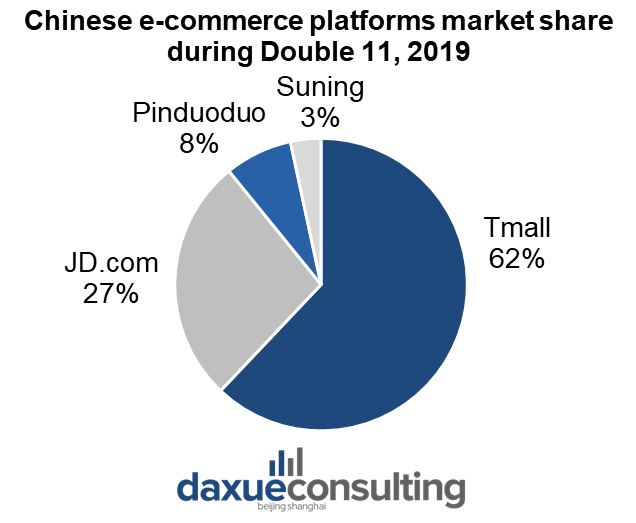
Source: Syntun, Chinese e-commerce platforms market share during Double 11 2019
11.11 is a combination of retail and entertainment
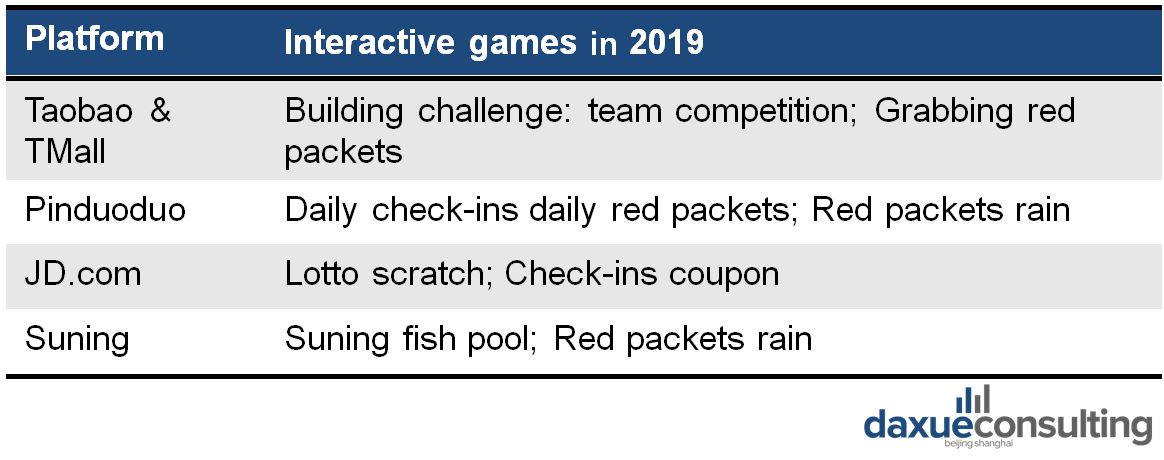
Source: Daxue Consulting, Double 11 interactive games in Chinese e-commerce platforms
Traditional retail may be seen as boring and less engaging for Gen Z and millennials in China. A discount campaign is a way to catch the customers’ attention, but not enough to create a sense of urgency. Gamification is one Double 11 marketing strategy that has pushed customers to make purchase decisions more quickly.
For each year’s Double 11, promotions and activities last two weeks, from 11/1 to 11/14. Aimed at maintaining online shoppers’ enthusiasm, every platform offers coupon rewards through games until November 11th.
Team games have proven to be the most interactive. In many games like TMall’s cat finding game, the more a team collects, the more discounts and coupons received. Red Packets Rain or Grabbing Red Packets are games that every shopper can play individually.
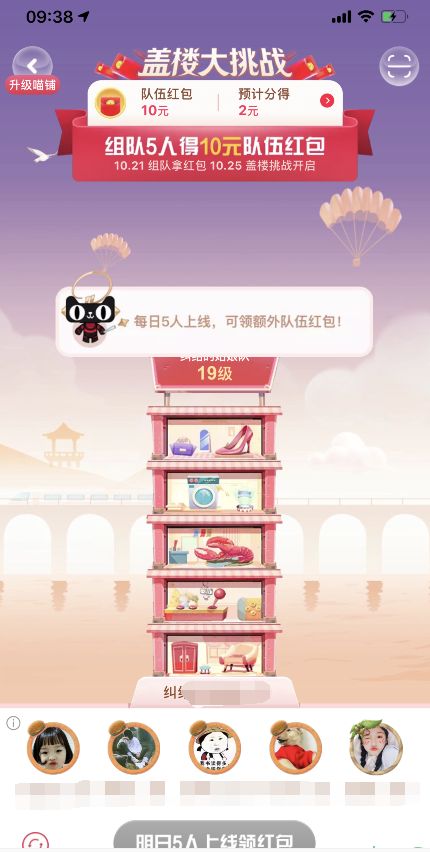
Source: Sohu, TMall Building Challenge
Gamification case study: Tmall’s skyscraper game
One example of gamification in Chinese e-commerce is TMall’s building challenge (gailou) which tool place during Double 11 2019. The basic idea is that each player builds their own building by inviting friends and viewing store pages. Inviting friends allowed the players to form a bigger team to build the building. Another easy method to build new floors was to view merchants’ pages for only 15 seconds.
Teams compete with each other, which stimulated customers’ competitive desire to win, making the game addicting. According to Quest Mobile, on Suning’s mini-program games, the daily active user (DAU) rates increased by 379% from October 11th to November 11th; and Pinduoduo got 17 million DAU on average through its in-app games.
Offline double 11 marketing strategy: Alibaba’s 11.11 Global Shopping Festival Gala
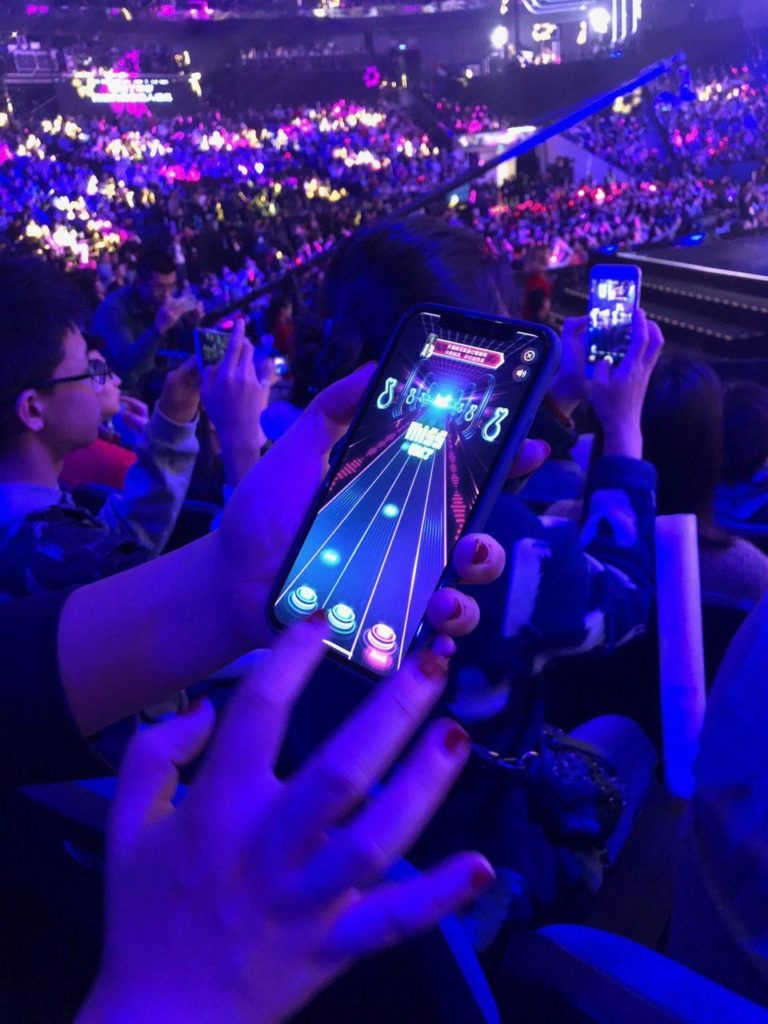
Source: Forbes, an audience playing an interactive game at Alibaba’s Global Shopping Festival Gala
Other than mini-games, the double 11 gala is an impressive interactive entertainment. Chris Tung, CMO of Alibaba Group, said: “The gala is a global carnival, a world-class performance that involves the audience throughout the event with many touch-points and is like nothing else you have experienced”
The audience is able to join the show by shaking their smartphone during the gala. Alibaba also invited famous guests, including American singer Taylor Swift, to highlight the gala as an international event.
When it comes to advertising space, the gala is similar to NFL Super Bowls. The advertising space between programs is highly competitive and expensive, making for very high quality and engaging commercials.
“The gala was extremely valuable, capable of bringing in conversion and brand impression that far exceed any period in the campaign,” said Liu Bo, general manager of Alibaba’s marketing-platform business, “ All of the energy, attention and emotions of consumers are concentrated within those few hours leading up to midnight.”
Livestreaming is becoming the center stage of Double 11 marketing strategies
Livestreaming has become a big part of the shopping event. According to Alibaba, on Nov 11th 2019, more than half of the merchants on TMall used live streaming, which helped generate 10 billion yuan by 8:55 am.
Before the appearance of livestream shopping, consumers would search for product recommendations on Weibo or Xiaohongshu. But now, they have Li Jiaqi, Viya, and other KOLs to provide recommendations on the platforms. Livestreaming even draws international celebrities like Kim Kardashian to the Double 11 playing field.
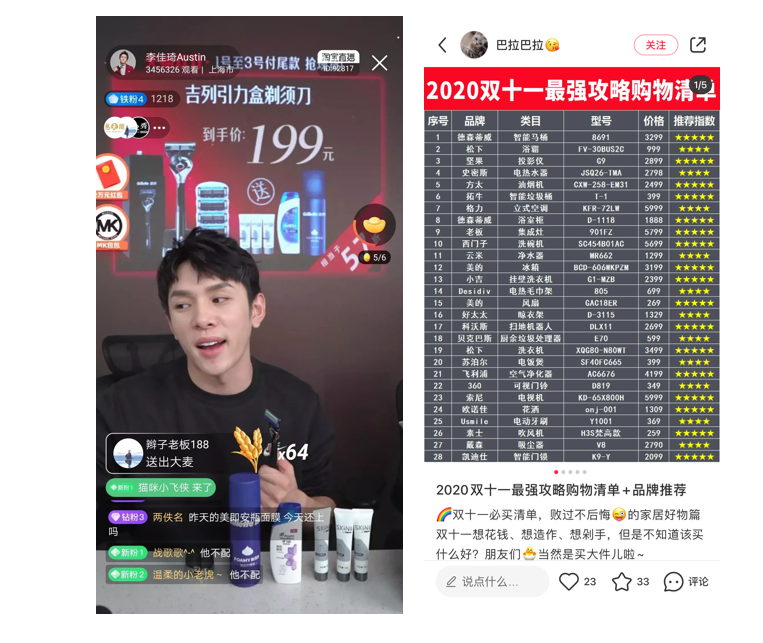
Source: Left: Taobao, Li Jiaqi’s live streaming; Right: Xiaohongshu, the best shopping list in 2020 Double 11
Livestreaming is considered to be the most important battlefield on each Chinese e-commerce platform. Alibaba’s plans for 2020 Double 11 consists of about 400 company executives and 300 celebrities to hold individual live stream sessions. The range of industries is from cosmetics, clothing, to cars and even houses. Taobao will also provide VR technology, like online property viewing and virtual vehicle test drives, to answer consumers’ concerns. Alibaba’s rival, JD.com, is planning to work with popular Chinese standup comedians to host a relaxing and funny live stream.
Double 11 in China is not just a sales event, but a new product launch opportunity
As Double 11 attracts more and more attention from consumers, many brands take the advantage of consumers’ enthusiasm to release new products. On Double 11 2019, more than half of beauty brands moved their exclusive gift sets for Christmas in advance to TMall Double 11 festival. Including Lancome, SK-II, YSL, all beauty brands reached an unexpected growth on Nov.11.
On 2020 Singles’ Day, Apple announced to host another launch event on November 10th, just a month after its last launch event on October 14th. And Huawei’s new smartphone, Mate 40 Pro, was launched on October 31st, meanwhile, Huawei also says they will increase the supply volume to meet consumers’ enthusiasm during the Double 11 periods.
What brands can learn from 2020’s Double 11 marketing strategies
- Double 11 is extremely competitive, the average discount rates are around 70%-80%. Brands usually prepare months in advance, starting as early as the previous year.
- Consumer engagement is extremely important to any double 11 marketing strategy. Gamification and offline events have proven to be successful. Even using VR and AR to engage consumers can drive them to your brand for the experience.
- Chinese consumers tend to be more social shoppers than their western counterparts. Many are willing to share games and content with peers in order to get a discount.
- Pre-orders can not only help your brand to forecast sales but make preparations in the supply chain accordingly. Besides, it can push customers to make a quick decision, since the deposit is much lower than the final price.
- Social media platforms have been the major traffic entrance for Double 11. For example, Weibo and Taobao sharetheir live streaming rooms on social media, which can make them reach out to customers regardless of which platform.
- It is also important for brands to enhance the shopping service in offline stores. Uniqlo offers pick-up service during the Double 11 time, which helps them reduce the pressure from delivery due to high volume orders.
Learn about KOL marketing in China
Listen to over 100 China entrepreneur stories on China Paradigms, the China business podcast
Listen to China Paradigm on Apple Podcast
